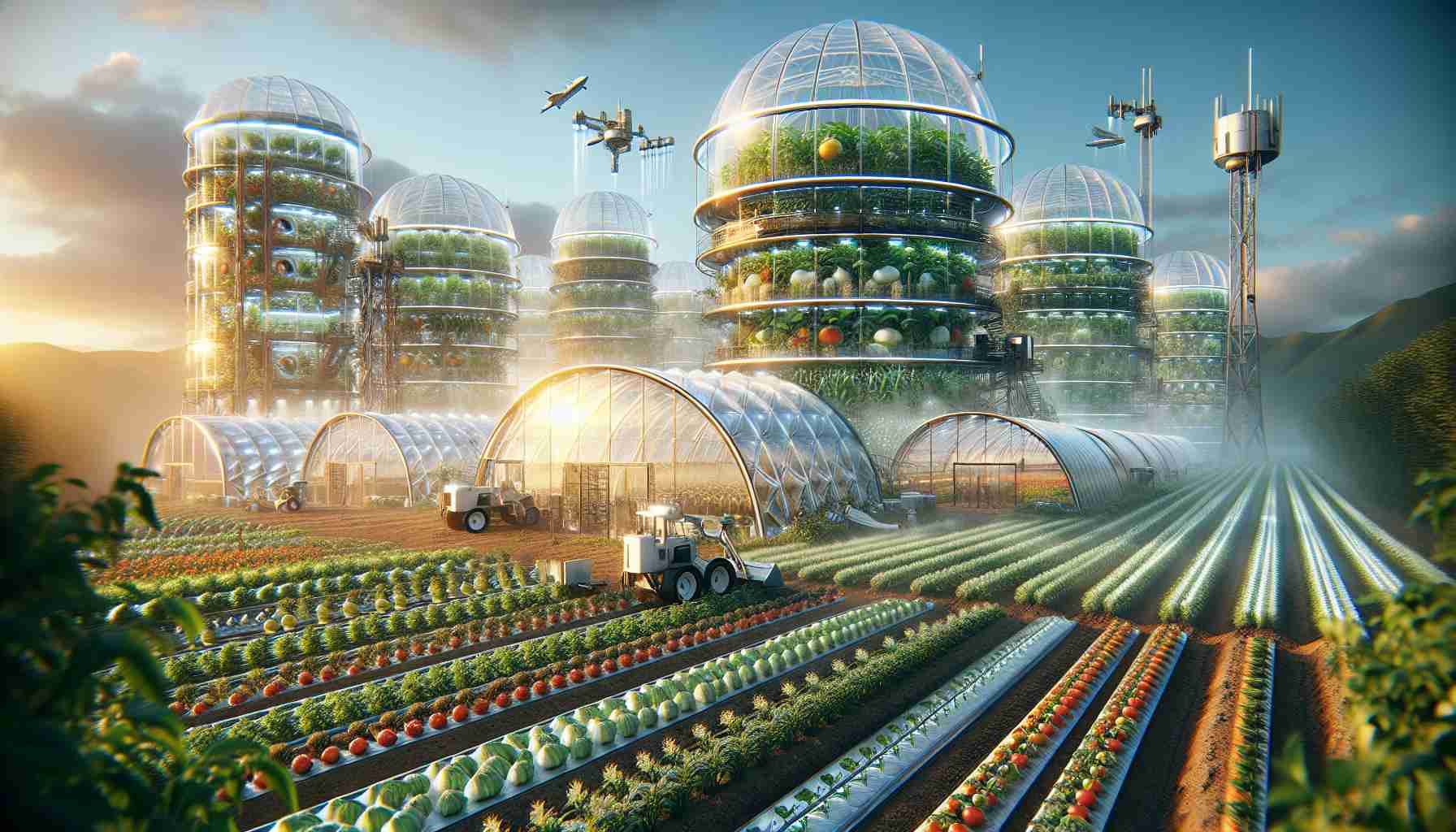AgTech’s Transformational Journey
In an era marked by rapid technological advancements, the agricultural sector is undergoing a significant metamorphosis driven by AgTech. As the CEO of Agmatix, Ron Baruchi underscores the importance of this evolution, highlighting how data-driven insights are paving the way for smarter farming practices.
The agricultural landscape is transforming, with innovative solutions helping farmers optimize their resources and improve crop yields. The integration of technology into farming is no longer a luxury but a necessity. Baruchi emphasizes that this shift not only enhances efficiency but also contributes to sustainability, a crucial factor in responding to the challenges posed by climate change.
Data plays a pivotal role in this transformation. Farmers are now equipped with tools that allow them to analyze soil health, weather patterns, and crop performance more effectively than ever before. By harnessing this information, they can make informed decisions that lead to better farming outcomes.
Looking ahead, the future of agriculture appears bright, driven by ongoing innovations in AgTech that promise to further revolutionize the industry. Companies like Agmatix are at the forefront, providing insights that empower farmers to embrace sustainable practices and technology.
The vision of a more innovative and sustainable agricultural sector is not just a dream—it’s rapidly becoming a reality as AgTech continues to evolve and make its mark on global farming.
The Future of Farming: How AgTech is Revolutionizing Agriculture
### The Rise of AgTech: Transforming Agriculture
The agricultural industry is in the midst of a significant transformation fueled by the advancements in agricultural technology, or AgTech. The emphasis on data-driven farming is allowing farmers to utilize modern tools and techniques that optimize resources, improve crop yields, and promote sustainability.
### Key Features of AgTech
– **Data Analytics**: Farmers now have access to advanced analytics that help them understand soil health, weather conditions, and other critical factors affecting crop growth. This allows for precision agriculture, which tailors practices to specific field conditions.
– **IoT and Connectivity**: Internet of Things (IoT) devices enable real-time monitoring of crops and environmental conditions, helping farmers make quick, informed decisions that enhance productivity.
– **Automation and Robotics**: The use of drones and automated tractors is becoming commonplace, significantly reducing labor costs and improving efficiency by performing repetitive tasks such as planting and harvesting.
### Pros and Cons of AgTech
**Pros**:
– Increased crop yields through precise farming techniques.
– Enhanced sustainability practices, reducing waste and environmental impact.
– Better resource management leading to cost savings for farmers.
**Cons**:
– High initial investment costs for technology adoption can be a barrier for smallholders.
– Dependence on technology may lead to risks, such as system failures or data breaches.
– The digital divide could exacerbate inequalities in agriculture, leaving some areas behind.
### Use Cases of AgTech
1. **Precision Farming**: Utilizing GPS and sensor data to monitor crop health and apply nutrients and pesticides only where necessary.
2. **Supply Chain Optimization**: Blockchain technology enhances transparency and traceability in the food supply chain, ensuring quality and reducing food waste.
3. **Predictive Analytics**: Farmers can predict crop yields and market demand using machine learning algorithms, enabling better planning and financial stability.
### Limitations and Challenges
Despite its promise, AgTech faces several challenges:
– **Access to Technology**: Many farmers, especially in developing regions, still lack access to the necessary tools and infrastructure to benefit from AgTech.
– **Training and Education**: Farmers may require training to effectively utilize new technologies, which can pose logistical and financial hurdles.
### Pricing Trends in AgTech
As technology becomes more prevalent in agriculture, pricing is expected to become more competitive. Cloud computing solutions and other software as a service (SaaS) models are emerging, providing farmers with scalable options that cater to their varied budgets.
### Sustainability Insights
AgTech significantly contributes to sustainability by:
– Reducing the use of chemicals and fertilizers through targeted applications.
– Conserving water via precision irrigation systems.
– Improving soil health by leveraging data to understand and manage soil composition.
### Market Analysis and Innovations
The AgTech market is projected to grow significantly over the coming years, driven by the need for sustainable farming practices and increasing global food demand. Innovations such as vertical farming, aquaponics, and biopesticides are gaining traction, offering more efficient and eco-friendly alternatives in food production.
### Security Aspects
As with any technology, the integration of AgTech comes with cybersecurity risks. Protecting sensitive data from breaches and ensuring the reliability of connected systems is critical for maintaining farmer trust and operational integrity.
### Predictions for the Future
The future of agriculture is bright, with AgTech playing a central role in addressing challenges posed by climate change, food security, and resource management. As innovations continue to evolve, we can anticipate a more sustainable, efficient, and productive agricultural landscape.
For more insights on how technology is shaping the future of agriculture, visit Agmatix.
